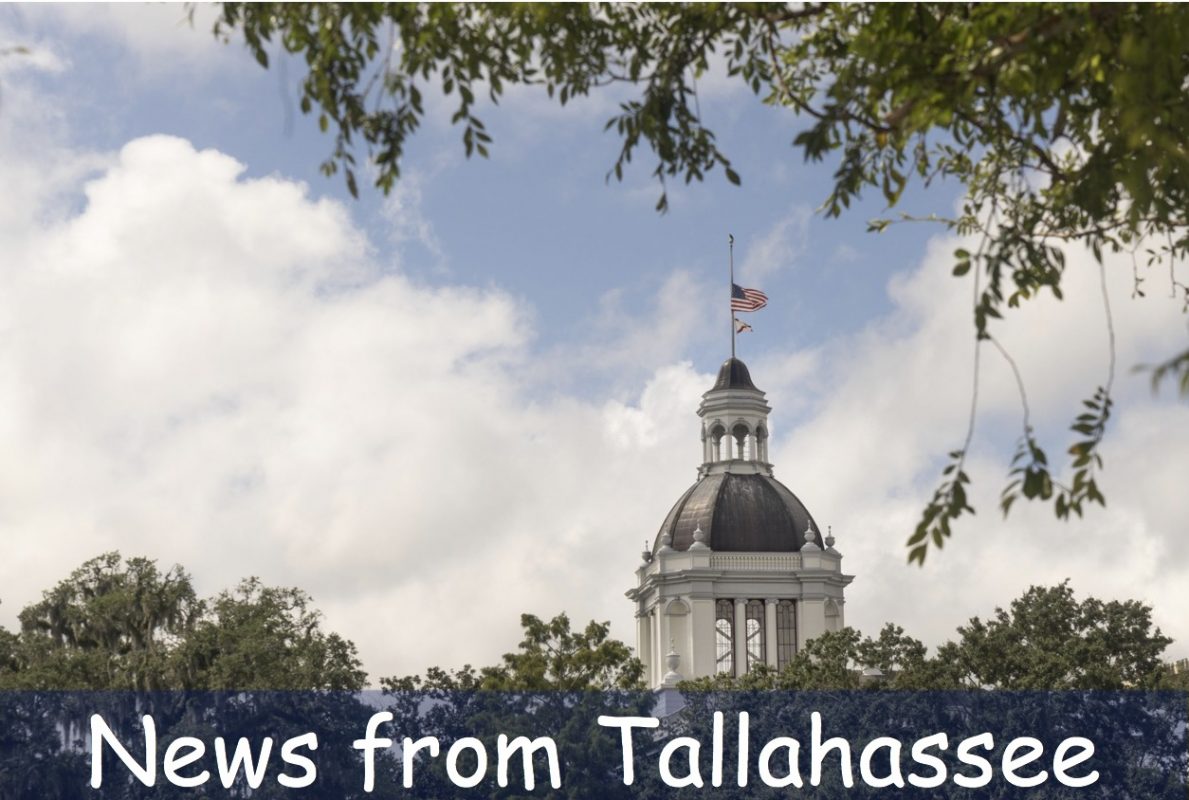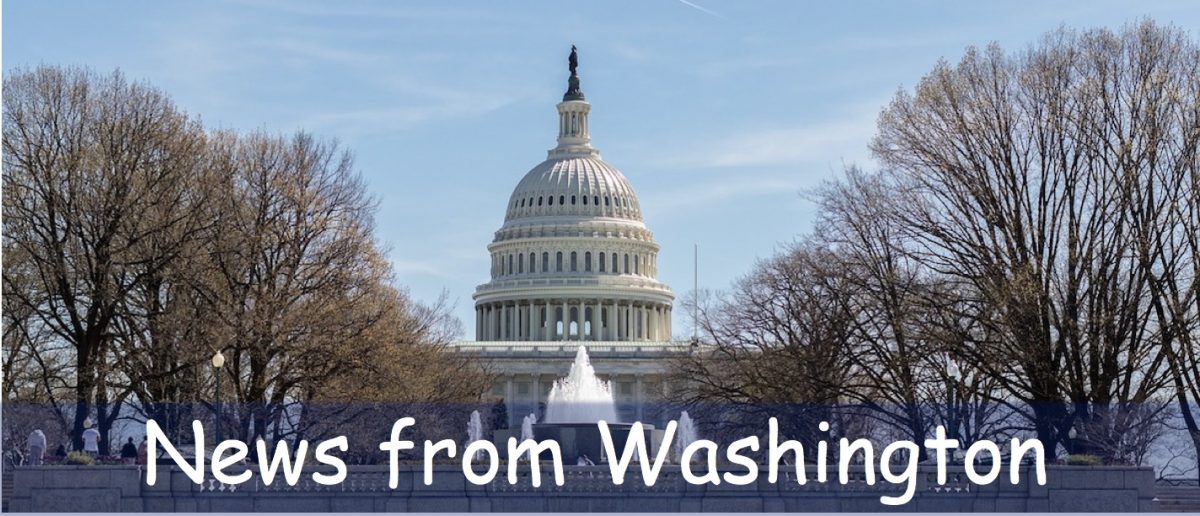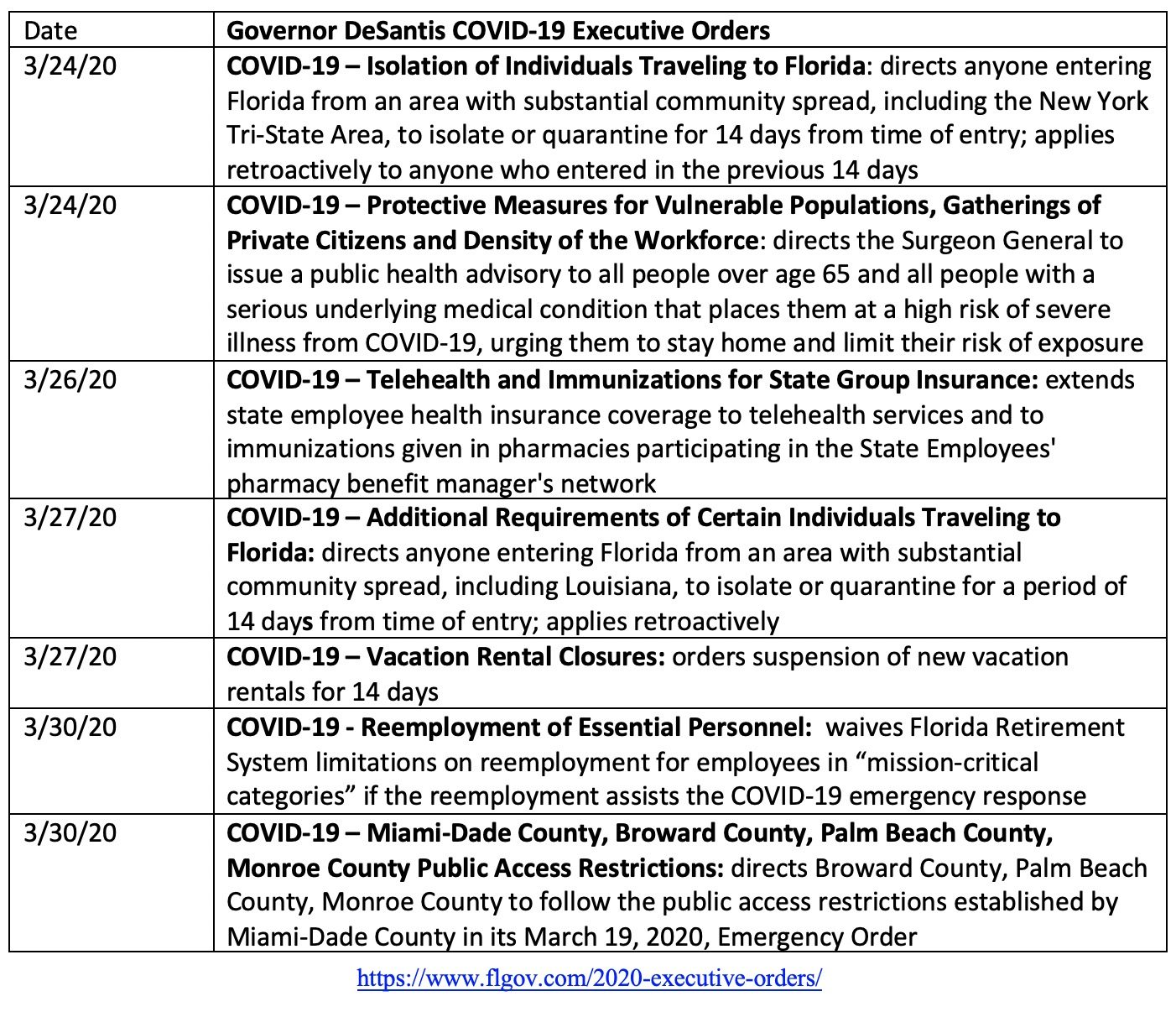This month in Florida Government news: Coronavirus strikes Florida; legislative session wraps; former felon voting lawsuit drags on. For these stories and more news for Florida voters, read on….

March was a disjointed month in state government news. Its first few weeks were dominated by final budget negotiations and the remaining business of the annual legislative session which officially came to a close on March 19.
But there was also the COVID-19 pandemic. Over the course of the month, Governor DeSantis declared a public health emergency and issued a total of 15 emergency-management-related executive orders. See last week’s post, Florida, Collier County Governments Respond to COVID-19, for the first eight orders and press coverage of government actions, and below for the seven orders issued and news from the last seven days.
In this post, I’ll continue that summary of state government actions in response to the pandemic, recap the highlights of the legislative session, and close with other Florida government news of note.
COVID-19
The Latest
Gov. Ron DeSantis announced Monday morning that those living in Southeast Florida should stay home until mid-May to mitigate the spread of COVID-19. Hours later, he corrected himself:
- DeSantis says he misspoke: South Florida to stay home until April 15, not May 15. Miami Herald, 3/30/20
- Florida orders Louisiana arrivals into quarantine. apnews.com, 3/28/20
- Florida coronavirus cases are growing fast. Here’s what that means. Tampa Bay Times, 3/28/20
Current Status of COVID-19 in Collier County and in Florida
The Florida Department of Health maintains up-to-date detailed information on Florida resident cases at an interactive Dashboard here. As I write, this is the latest:

3/31/20 – 3:00 PM
Since My Last Update
- DeSantis expands NYC-area travel order: passengers from 3 weeks ago must isolate and identify all contacts. Florida Phoenix, 3/24/20
- Gov. DeSantis asks seniors to stay home, says New York area travelers must report contacts. WUSF News, 3/24/20
- FL National Guard greets NYC fliers with isolation greeting. Miami Herald, 3/24/20
- Florida Supreme Court suspends jury trials through April 17. Orlando Sentinel, 3/24/20
- Florida orders two-week delay in property tax payment deadline. Sun Sentinel, 3/26/20
- Do abortions fall under elective surgeries? Some Florida Republican leaders want them stopped. Florida Politics, 3/26/20
- Coronavirus is generating a surge of interest in voting by mail in the 2020 presidential election. It’s not a panacea. Sun Sentinel, 3/27/20
For more information, please also see Sen. Kathleen Passidomo’s COVID-19: State efforts & resources to keep you safe.
Recapping the 2020 Legislative Session
The Budget
Legislators fulfilled their sole constitutional responsibility to pass a balanced budget on March 19 amidst the coronavirus crisis. At $93.2 billion, up $2.1 billion or 2.3 percent from the current year, it set another Florida record. Assuming few line-item vetoes by the Governor, 2020-21 will be the ninth year in a row of budget increases; the 2011-12 budget was $69.1 billion.
The appearance of COVID-19 toward the end of session caused last-minute changes to the budget. Reserves of $4 billion were provided in anticipation of potential revenue shortfalls such as in sales tax collections, and of $52.5 million in combined state and federal dollars for purchases related to the pandemic. Should that prove not to be sufficient, legislators may be called back into session to make changes before the budget takes effect on July 1.
- Florida lawmakers just passed a budget. Coronavirus will likely change it. Tampa Bay Times, 3/19/20
- March 20, 2020: Sine Die. Sen. Kathleen Passidomo Legislative Newsletter, 3/20/20
For pre-K – 12 education, budget highlights include:
- Teacher Pay – $400 million for base teacher pay increases and $100 million for veteran teachers and other school workers
- Base Student Allocation (BSA) – An additional $340 million increases the BSA by $40 per student
- Florida Education Finance Program (FEFP) – $17.7 billion, a 3.64% increase from FY 19-20
- School Mental Health Funding – Additional $23 million for a total of $100 million
- Voluntary Prekindergarten (VPK) – $413.8 million, an increase from $402.3 million in 2019-2020
Other highlights include full funding for affordable housing programs; a 3 percent across-the-board pay raise for state employees, with corrections officers receiving an additional salary boost; money to sustain VISIT FLORIDA for another year; and a $100 million commitment to the Florida Forever environmental land-buying program.
- State workers, corrections officers get pay hikes; tourism agency survives. The Center Square | Florida, 3/8/20
The budget also includes nearly $690 million for Everglades restoration and water quality programs, well over DeSantis’ $635.3 million request. The difference reflects funding for local water projects, many of which had been vetoed in the past by then-Gov. Rick Scott, and $50 million for aquifer storage and recovery wells around Lake Okeechobee, a program criticized by some environmentalists.
- Legislature to surpass DeSantis request for water projects, directives. Politico Florida, 3/18/20
In reviewing the requested financing for projects sought by members for their home districts, “It’s safe to say that the vetoes will just simply be different today than they would have been had this budget come out two months ago,” DeSantis said.
- FL Legislature approves state budget amid fears COVID-19 could wreck their plan. Florida Phoenix, 3/19/20
Like beauty, as I wrote in last year’s session recap, whether it was a “good session” or a “bad session” is in the eye of the beholder. For overviews from each perspective, I recommend:
- Statement from the Majority Leader on the successes of the 2020 legislative session, by Sen. Kathleen Passidomo, R-Naples, representing Collier, Hendry, and part of Lee counties, Majority Office Press Release, 3/19/20, and
- The 2020 Florida Legislative Session failed on more fronts than one. ACLU of Florida, 3/20/20
Here are highlights of some key public policy decisions taken in the session:
Education
As mentioned above, the budget includes $400 million to raise the minimum teacher salary, a DeSantis priority, and $100 million to raise the pay of veteran teachers and other instructional personnel.
- FEA: Salary increase welcomed; work remains to be done. Press Release: Florida Education Association, 3/14/20
In another win for teachers, lawmakers eliminated the previous Best and Brightest Teacher Bonus Program that relied on teachers’ old standardized test scores.
- How will Florida’s teacher raises work? Who is eligible for the raises, how much each district will get, and more. Tampa Bay Times, 3/17/20
Lawmakers also expanded the controversial Family Empowerment Scholarship Program that allows lower-income families to attend private schools — including religious schools — using public funding. Specifically, the rate at which the number of vouchers can grow each year quadrupled, and the maximum family income eligible for the program was raised to $83,688.
- Bill expanding private school vouchers passed Florida House without amendments banning anti-LGBTQ policies. Tampa Bay Times, 3/9/20
Under a bill called “Alyssa’s Law,” all district and charter schools will be required to have panic alarms in an effort to cut down the response time in case of a school shooting or other emergency.
- Florida Legislature passes bill requiring panic alarms in schools. Tampa Bay Times, 3/10/20
Bills that failed to pass were one to implement further recommendations from the Marjory Stoneman Douglas High School Public Safety Commission, which was a DeSantis priority, as well as bills that addressed voluntary pre-kindergarten, parental rights, school-board term limits and testing measures.
- Florida school-safety bill among education measures left to wither. The Center Square | Florida, 3/17/20
Citizen Initiative
The threshold to trigger judicial review of citizen-initiated amendments to the Florida constitution would be raised and petitions would expire if the initiative doesn’t get enough support within one two-year cycle under a bill that passed on a party-line vote. Proponents say it keeps the constitution clean. Opponents say it creates a “ballot for billionaires.”
- Higher review threshold for citizen initiatives awaits Ron DeSantis’ pen. Florida Politics, 3/11/20
The Environment
The Clean Waterways Act, with most of DeSantis’ water quality priorities, including initiatives in septic-to-sewer conversion, wastewater, stormwater, agriculture and biosolids, and recommendations of his Blue-Green Algae Task Force, is on its way to the Governor’s desk.
- Bill aimed at battling algae blooms headed to DeSantis. USA TODAY – Florida Capital Bureau via Naples Daily News, 3/11/20; SB 712
Also on the Governor’s desk is a bill requiring municipalities and state agencies to submit 50-year sea level impact projection studies to the state’s Department of Environmental Protection before using tax revenues to build structures on beaches or in tropical storm flood zones.
- Florida House moves landmark environmental legislation to DeSantis’ desk. The Center Square | Florida, 3/11/20; SB 178
Health, Safety and Welfare
Despite opposition from the Florida Medical Association and in a major win for House Speaker Jose Oliva:
- Autonomy for nurse practitioners, finally. Florida Phoenix, 3/11/20
Legislation that would require guardians to get a judge’s approval before signing “do not resuscitate” orders on behalf of incapacitated clients, prohibit them from seeking their own appointment to specific cases and revise provisions related to conflicts of interest will soon be law.
- Bill reforming Florida’s troubled guardianship program heads to governor. Orlando Sentinel, 3/12/20
In the waning days of the legislative session, lawmakers passed a bill in hopes of curtailing the current youth vaping epidemic.
- Teens and parents: the Florida Legislature passed vaping regulations. Here’s what to expect. Florida Phoenix, 3/23/20
Some university hospitals use patients under anesthesia as a teaching tool for medical students while undergoing other procedures, unbeknownst to the patient. Now:
- Florida set to require consent for pelvic exams. Associated Press, 3/13/20
Taxes
The budget provides for the usual sales tax holidays at a combined cost to the state of $36.6 million: the “Back-to-School” holiday from August 7 – 9, and the “Disaster Preparedness” holiday from May 29 – June 4.
- Senate passes broad-based tax relief package including back-to-school and disaster preparedness sales tax holidays. Press Release – The Florida Senate, 3/13/20
- Many Florida TaxWatch priorities succeed in 2020 session. Florida TaxWatch, 3/14/20
Other Important Policy Decisions
- Florida legislature passes bill requiring parental consent for minors to have abortion. cnn.com, 2/21/20
- Florida Senate OKs controversial E-Verify measure that targets undocumented workers. Sun Sentinel, 3/9/20
- Lawmakers adopt bill blocking local sunscreen bans. Florida Politics, 3/10/20
In Other Florida Government News
- Court won’t block 17 Florida felons from voting. Orlando Sentinel, 3/3/20
- Federal judge tells Florida to fix flawed process for letting felons vote or ‘I will’. Miami Herald, 3/27/20
- Judge delivers final blow to troubled domestic violence coalition, orders dissolution. Miami Herald, 3/12/20
- Florida Public Service Commission approves largest shared solar program in the nation Florida Daily, 3/3/20
- DEP Secretary Noah Valenstein adds Chief Resilience Office duties to his portfolio. Florida Politics, 3/10/20

- Marco Rubio and Rick Scott want 10-year ban on drilling off Florida coast in Senate energy bill. Tampa Bay Times, 3/4/20
- Rubio wants to increase scrutiny of foreign home buyers in Miami with new legislation. Miami Herald, 3/12/20
- Scott critical of bailout plan for giving too much to jobless. Tallahassee Democrat, 3/26/20
That’s it for my recap of Florida government news for March. Next up: my review of government news specifically for Collier County voters.

